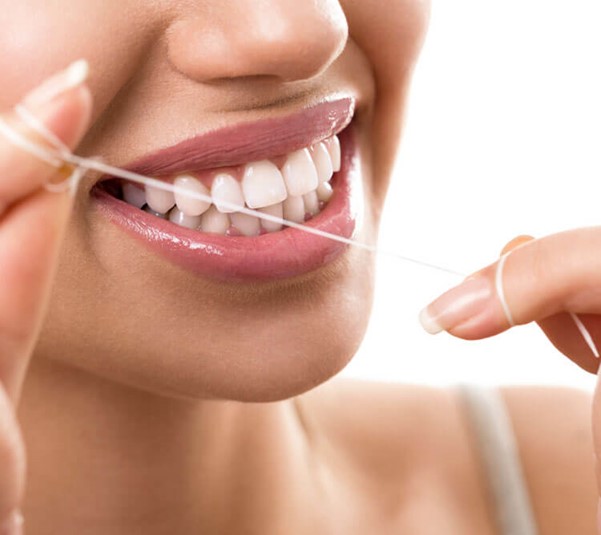How Does Flossing Help Your Teeth?
We hear a lot about the need to brush your teeth twice a day using a soft bristled toothbrush and fluoride toothpaste. Sometimes flossing is ignored, seems to be the plan B or an optional extra! This raises the question of whether flossing your teeth actually does help and whether you can do without it.
Flossing plays an important and integral role in your overall oral hygiene practices. Occasional flossing may not be sufficient or effective. In fact, by not flossing you are avoiding cleaning up to 40% of your tooth surface. Tooth decay often begins between teeth where the toothbrush cannot reach.
There are many benefits of flossing. Let's explore some of the main reasons why you should adopt regularly flossing your teeth and making flossing part of your daily oral hygiene routine. SO, how does flossing help your teeth?
Flossing Helps Prevent Bad Breath
Bad breath is more likely to occur if you do not regularly floss your teeth.
As food particles get stuck in between teeth, over time there is a buildup. As the food debris breaks down and bacteria grow in number, the result is an unpleasant odour.
Removing Food and Debris
Your toothbrush cannot reach certain areas in your mouth. While brushing your teeth keeps the surfaces of your teeth clean - that is the front and back of your teeth - it is difficult to clean between your teeth with a toothbrush. The bristles may not be able to get in between your teeth. There is very little space between the teeth for the bristle to manoeuvre, and it's the tooths surface that is not visible. Even with the best brushing techniques and doing so twice daily, it leaves you vulnerable to cavities because you have not flossed.
Flossing dislodges the food particles and debris trapped between your teeth, as well as reduces the amount of bacteria that you may not even be aware you have. By removing the food debris you are helping to prevent the growth and buildup of plaque and bacteria. This is imperative to stop tooth decay.
Prevent Gingivitis and Advanced Gum Disease
After a period of not flossing bacteria will accumulate between the teeth and under the gums. You may notice the gums becoming inflamed. This means an infection has developed. A lack of flossing and good dental and oral care can lead to gum disease.
Also known as gingivitis, the gums will appear red, swollen and feel sensitive. At the early stages the gums will appear normal but before long they may start to bleed easily because there is blood sent to the area to fight the growing infection. Unfortunately, once this process has commenced, it is vital for the bacteria buildup under the gums to be removed.
When the bacteria is not removed, it can lead to advanced gum disease known as periodontitis. This is where the disease has worsened and has spread to the jaw. Periodontitis is especially problematic because it is often irreversible and can cause teeth loss. This is because the bone and surrounding structures and gum tissue that hold the tooth in place have broken down.
Reduce Tartar Buildup
Removing the plaque between the teeth helps prevent the onset of tartar. This is because when left alone, plaque eventually hardens into tartar or calculus. You may see this buildup at the gum line and is the cause of gingivitis. This tartar buildup will eventually lead to various dental issues such as advanced gum disease and tooth decay.
Reduces Risk of Tooth Decay and Cavities
Not removing the food debris and bacteria between teeth can also lead to cavities. Cavities are caused by tooth decay or caries. This is the accumulation of dental plaque. As the sugars and carbohydrates in our diet come into contact with the plaque, acid is created. This acid then attacks the tooth and causes decay.
Once you have developed tooth decay, the treatment option available is for the dentist to drill into your tooth and remove the decay. The hole is then filled with a filling.
Unfortunately, with each filling, your tooth gets weaker and weaker because more of the natural structure of the tooth has been removed and the nerve is at great risk of complications. This may mean more time consuming and costly treatments for your teeth in the future, or it may result in tooth loss altogether.
Flossing helps to break this cycle - the plaque buildup is halted and tooth decay can be prevented.
So What Are You Waiting For?
Brushing alone is not enough for optimal dental health. Ask your dentist about the right dental floss for you. Achieve a brighter and healthier smile.
Getting into the habit of flossing is well worth the effort!
Make An Appointment Today!
Be informed and vigilant about your tooth and gum health and stay on top of any tooth decay well before it starts to cause any lasting damage.
If you have noticed signs or have symptoms of tooth decay, gum disease or simply want more advice about your dental hygiene call our friendly staff today on (08) 8268 5422.

